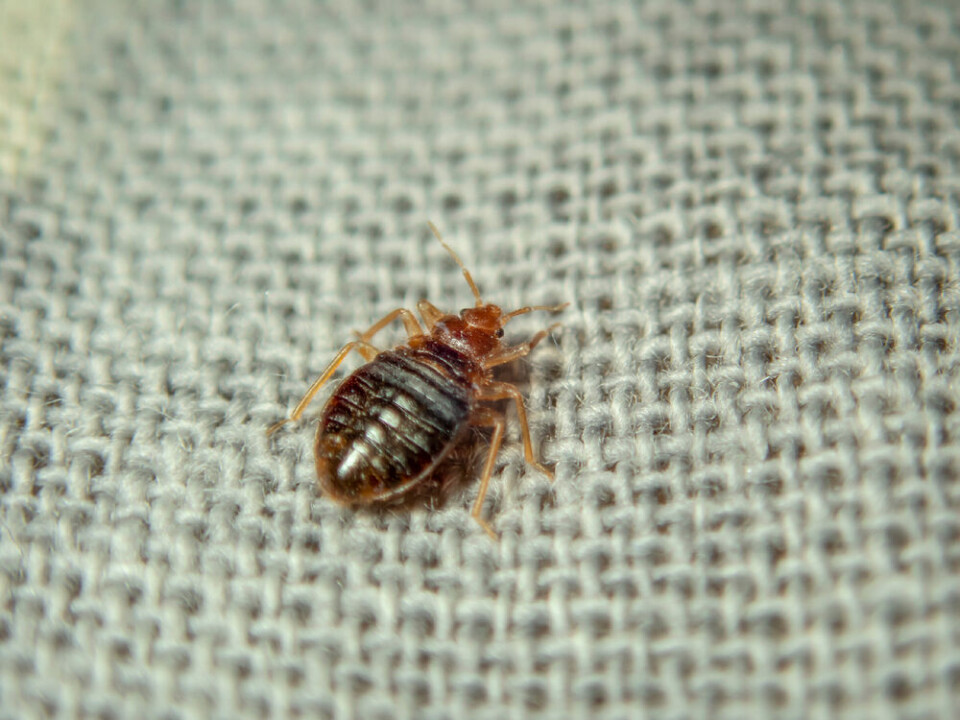-
New Paris-Jersey direct flight to launch this summer
Loganair route forms part of Channel Island’s tourism boost plan
-
Death of right-wing protester in Lyon sparks fears of further political violence
Quentin D, 23, died after reportedly being ambushed by far-left activists near site of political conference
-
How to save money on seeing a specialist doctor in France
Some specialists charge more than others for the same service
Warning over insecticide used against bed bugs in France
The product is suspected to be the cause of the death of a man in Lyon

French health authority ANSES is warning against an insecticide used against bed bugs.
Jointly with poison control centres, it published a study on Tuesday (December 5) warning against the use of the Sniper brand product which is thought to be the cause of increasing poisonings, sometimes fatal.
The insecticide produced in China is banned from sale within the European Union due to its high toxicity, but is still being used against pests such as bedbugs and cockroaches
"Despite its ban in France in 2013 for household use, poison control centres recorded 170 incidents related to the product Sniper 1000 EC DDVP from January 1, 2018 to June 30, 2023,” said a press release from ANSES.
🚨Malgré son interdiction en vente depuis 2013 en France, le produit insecticide SNIPER 1000 EC DDVP est à l’origine de 206 #intoxications depuis 2018.
— Anses (@Anses_fr) December 5, 2023
Ce produit est utilisé contre les cafards et les punaises de lit 🪳
Cc @DGCCRF
Notre actu👇https://t.co/V6ngWgCjby
In May 2023, the health authority was notified of the severe poisoning of an infant after ingesting nearly a third of a vial, while the product is currently suspected responsible for the death of a man in Lyon last month.
Read more: TRY OUR TEST: identify different bugs you may find at a home in France
Investigation for manslaughter
"While most of the cases reported to poison control centres were mild, nearly 10% were of moderate severity and 5.5% were of high severity, including three deaths," according to the authority.
Prosecutors in Lyon have now opened an investigation for involuntary manslaughter, endangering the lives of others and unauthorised sale of dangerous products after the discovery of the insecticide Sniper 1000 in the home of a deceased elderly person.
Listed on its dangerous products alert site, the government has been raising awareness among consumers since November 8 about the Sniper 1000 EC DDVP vials, advising the public to stop using them.
One of the identified distributors has made a voluntary recall, relayed on the RappelConso website, the authorities said on Tuesday.
Context of the bedbug resurgence
Poisonings due to this insecticide have seen an increase due to use against the resurgence of bed bug infestations. 11% of households were infested between 2017 and 2022, ANSES estimated in July.
Read more: Bedbugs on public transport seats in France: Minister promises action
ANSES deemed insecticides to be a last resort, and recommends people not to use such products themselves, but rather call on an exterminateur de punaises de lit agréé (accredited bedbug exterminator).
Meanwhile the government has advised the public to avoid using insecticides altogether.
"Bedbugs have developed resistance to almost all over-the-counter insecticides," the Ministry of the Interior said. “Therefore, physical control (mechanical and thermal) is to be preferred as a first line over chemical control."
The dangerous substance
The cause of concern is dichlorvos, an active substance from the organophosphate family, classified as lethal by inhalation and toxic if in contact with the skin or by ingestion.
In particular it can cause respiratory symptoms such as asthma, eye irritations and neurological disorders that can lead to loss of consciousness and skin allergy.
Despite being banned since 2013 in insecticides for household use, dichlorvos can still be purchased - notably under the name Sniper 1000 EC DDVP.
It can be purchased via "illegal channels" including markets particularly in the north of Paris and Seine-Saint-Denis and, "to a lesser extent", on e-commerce platforms. It can also be purchased from outside the EU.
Read also
How sniffer dogs and ‘catch cups’ help fight against bedbugs in France
Cockroaches and bedbugs found on Marseille’s bus and metro network
























